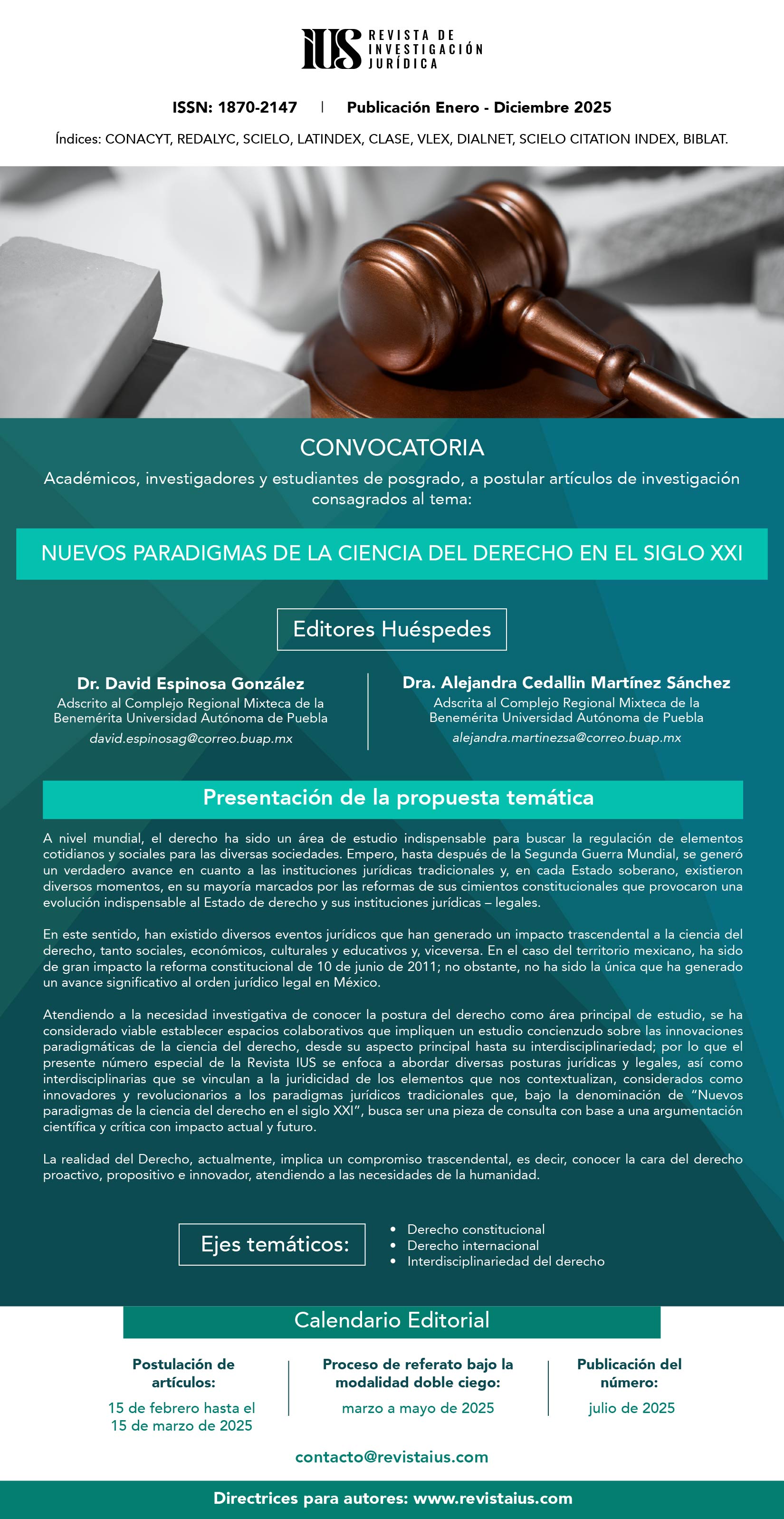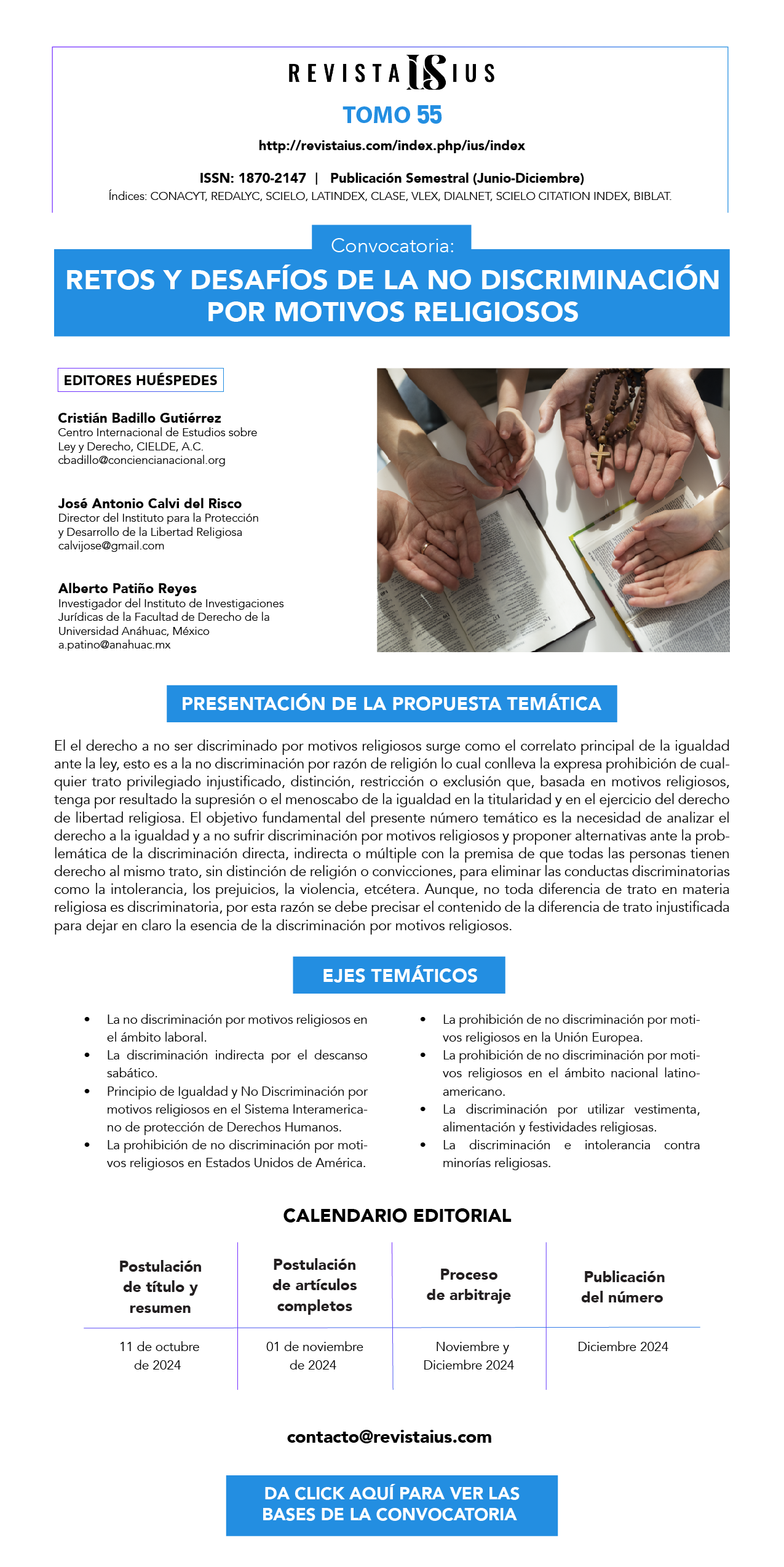Perspectivas actuales del derecho burocrático conforme a la reforma laboral y los nuevos cambios de Gobierno
DOI:
https://doi.org/10.35487/rius.v14i45.2020.550Keywords:
Derecho Burocrático, reforma laboral.Abstract
El derecho laboral burocrático ha venido ganando terreno día a día en su valor académico y doctrinario, además de representar innegables matices de utilidad práctica, como marco regulador de una multiplicidad de actividades de los servidores públicos. Sin embargo, en esta época de finales del siglo, es momento oportuno para reflexionar y profundizar en las características y signos distintivos de esta rama jurídica, tanto en su evolución de orden histórico como en sus propios contenidos teóricos y doctrinales, sin dejar a un lado el conocimiento de sus aplicaciones de orden pragmático en el derecho positivo del país y del extranjero.
Downloads
References
• ACOSTA ROMERO, Miguel, Derecho burocrático, Editorial Porrúa, México, 1995, p. 21
• Antón Moller, Miguel; Derecho del trabajo burocrático; PAC; México 1998; p. 12
• Reynoso Castillo, Carlos; Curso de Derecho burocrático; Porrúa; México 1999; p. 14.
• Bolaños Linares, Rogel; Derecho laboral burocrático, Porrúa, México 2010, p. 1
• Villareal Reyes, Alma Rubí; Derecho Colectivo Burocrático, Porrúa, México 2011, p. 3.
• Trueba Urbina, Alberto. Nuevo Derecho Procesal del Trabajo; Porrúa México, 1981.
• Carlos A. Morales Paulín; Derecho burocrático; Porrúa; México, 1995; p. 103
• Centro de Estudios Sociales y de Opinión Pública, CESOP, Cámara de Diputados del Congreso de la Unión, México, 2012.
• http://dof.gob.mx/nota_detalle.php?codigo=5472965&fecha=24/02/2017
• https://www.forbes.com.mx/estos-son-los-50-puntos-del-plan-anticorrupcion-y-de-austeridad-de-amlo
Downloads
Published
Issue
Section
License
Revista IUS, published by the Legal Sciences Institute of Puebla A.C., is distributed under the Creative Commons Attribution-NonCommercial 4.0 International (CC BY-NC 4.0) license.
We authorize collaborators to upload a copy of their published work on their personal websites or any Open Access repository, provided that Revista IUS is specifically cited as the original source, indicating the year and issue of the respective example and adding the link to the webpage on which this publication can be freely consulted in toto and without charge: http://www.revistaius.com
Readers are free to:
Share, copy and redistribute the material via any medium or format.
The licensor cannot revoke these freedoms as long as you follow the license terms.
Under the following terms:
Attribution: You must give appropriate credit, provide a link to the license, and indicate if changes were made.
You may do so in any reasonable manner, but not in any way that suggests the licensor endorses you or your use.
NonCommercial – You may not use the material for commercial purposes.
If you remix, transform or build upon the licensed material, its distribution is not permitted.
Charges for managing articles: Revista IUS will not charge for receiving, processing or publishing articles (Article Processing Charge, or APC) submitted by authors.





